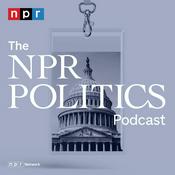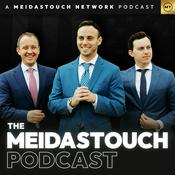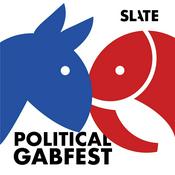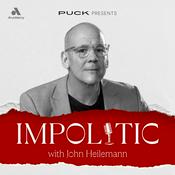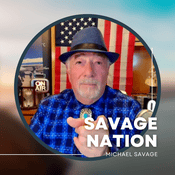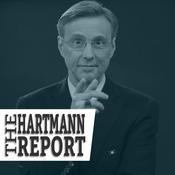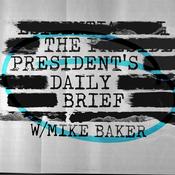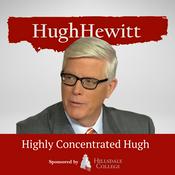14 episodes

Dean Ball is leaving the podcast
4/16/2025 | 57 mins.
This week Dean began a new job: senior policy advisor for AI in the Trump White House. I will miss having him as a co-host and wish him the best in his new role.In this episode, recorded last Friday, we speculate about how AI could change the world over the next 25 to 50 years. We discuss what makes human beings unique, whether humans can maintain control, and how we’ll find meaning in an increasingly automated world. This is a public episode. If you would like to discuss this with other subscribers or get access to bonus episodes, visit www.aisummer.org

Charles Yang on AI and Science
4/07/2025 | 1h 1 mins.
This week, Dean and Tim talk to Charles Yang, a former staffer at the Department of Energy who now writes the Rough Drafts newsletter. Tim has written extensively about AI in science, concentrating especially on the potential of AI to transform materials science. His work has focused not just on models, but on building robotic, “self-driving” labs to accelerate scientific research. The conversation touches on the latest AI advancements in science, how AI models do and do not help scientists, and what might be coming next. This is a public episode. If you would like to discuss this with other subscribers or get access to bonus episodes, visit www.aisummer.org

James Grimmelmann on the copyright threat to AI companies
3/19/2025 | 53 mins.
James Grimmelmann is a professor of law at Cornell University and a leading expert on copyright law. Grimmelmann walks through the complex process courts use to determine whether training AI models on copyrighted materials—like OpenAI using New York Times articles—is infringement or fair use. He highlights key precedents like the Google Books case, emphasizing how courts weigh transformative uses against potential market harms.The discussion addresses the nuances of generative AI, notably cases where models inadvertently reproduce large excerpts from training materials. Grimmelmann argues that while the industry has largely addressed explicit "regurgitation," ambiguity remains around subtler forms of copying, particularly with image-generating models, which could substantially impact copyright holders like Getty Images.Grimmelmann and the hosts delve into potential legal outcomes, including moderate rulings that force licensing agreements, or harsher ones that could significantly restrict the availability of open-source AI models. The interview also touches on Congress's historical reluctance to intervene in contentious digital copyright issues, leaving critical decisions to be gradually shaped by court rulings.Dean and Tim conclude that while an outright shutdown of generative AI by courts is improbable, the forthcoming legal decisions will likely reshape the industry's structure, potentially favoring larger companies capable of negotiating extensive licensing deals. Grimmelmann anticipates initial district court rulings within the year and appellate decisions by 2026, setting the stage for a pivotal shift in how AI companies use copyrighted works. This is a public episode. If you would like to discuss this with other subscribers or get access to bonus episodes, visit www.aisummer.org

Andrew Lee on running an AI email startup
2/27/2025 | 1h 1 mins.
Andrew Lee is the co-founder of Shortwave, an AI-powered email app. He’s also Tim’s brother.Andrew shares how Shortwave evolved from a conventional email app into a multi-LLM system that automates inbox organization, drafts messages, and performs advanced search via agentic reasoning. He explains how recent improvements in model performance have dramatically changed what is possible for an app like Shortwave. He discusses which models Shortwave uses, the tradeoffs between open and closed models, and where AI-powered email is going next. This is a public episode. If you would like to discuss this with other subscribers or get access to bonus episodes, visit www.aisummer.org

Dean and Tim on Deep Research and the Paris Summit
2/21/2025 | 1h 3 mins.
In this episode, Dean and Tim discuss Dean’s trip to Paris for the AI Action Summit, including Vice President Vance’s speech on AI. They talk through the European outlook on AI regulation, European resentment toward America, and the stark shift in policymaker attitudes toward AI safety. Then they turn to OpenAI’s new Deep Research agent, chatting about their experience with the product and reflecting on what it means for the future of policy research. This is a public episode. If you would like to discuss this with other subscribers or get access to bonus episodes, visit www.aisummer.org
More News podcasts
Trending News podcasts
About AI Summer
Listen to AI Summer, Pod Save America and many other podcasts from around the world with the radio.net app

Get the free radio.net app
- Stations and podcasts to bookmark
- Stream via Wi-Fi or Bluetooth
- Supports Carplay & Android Auto
- Many other app features
Get the free radio.net app
- Stations and podcasts to bookmark
- Stream via Wi-Fi or Bluetooth
- Supports Carplay & Android Auto
- Many other app features


AI Summer
download the app,
start listening.





